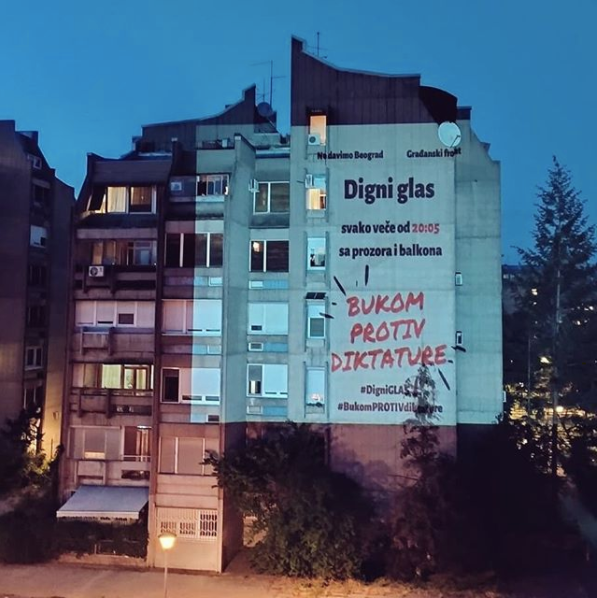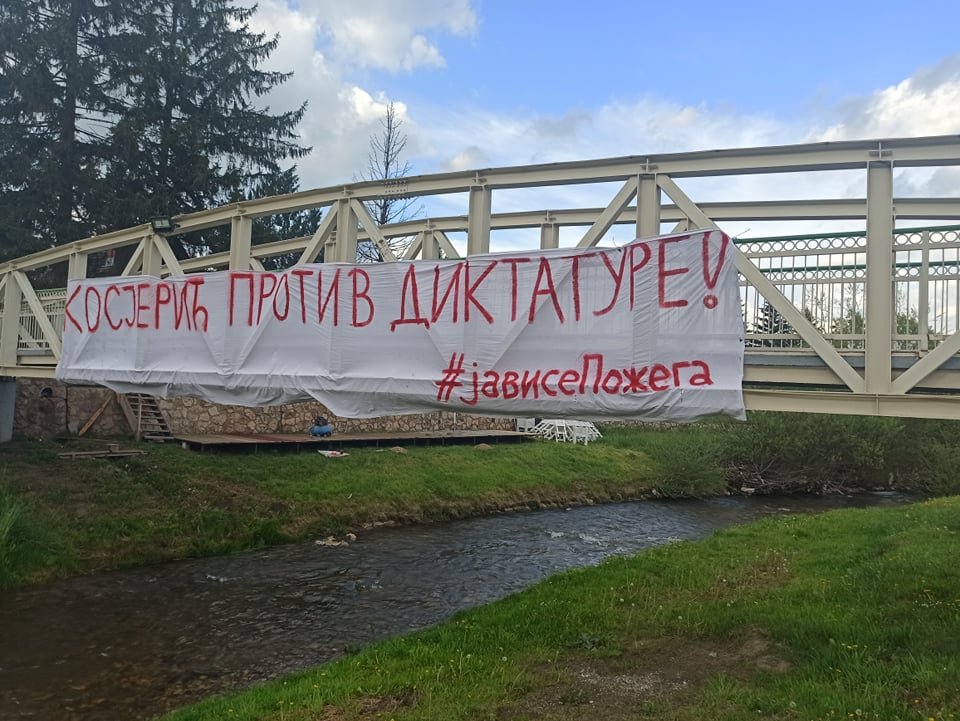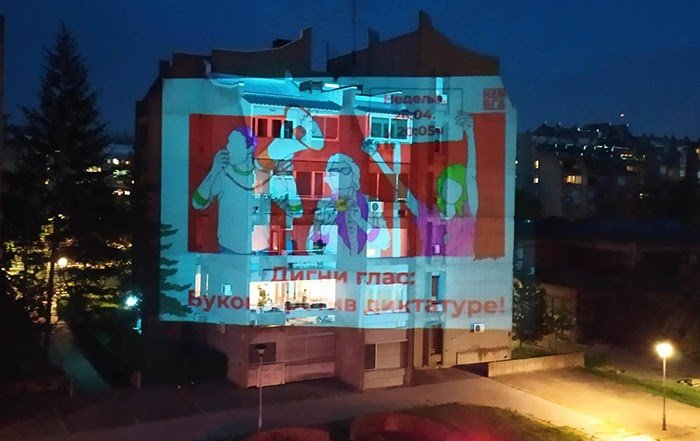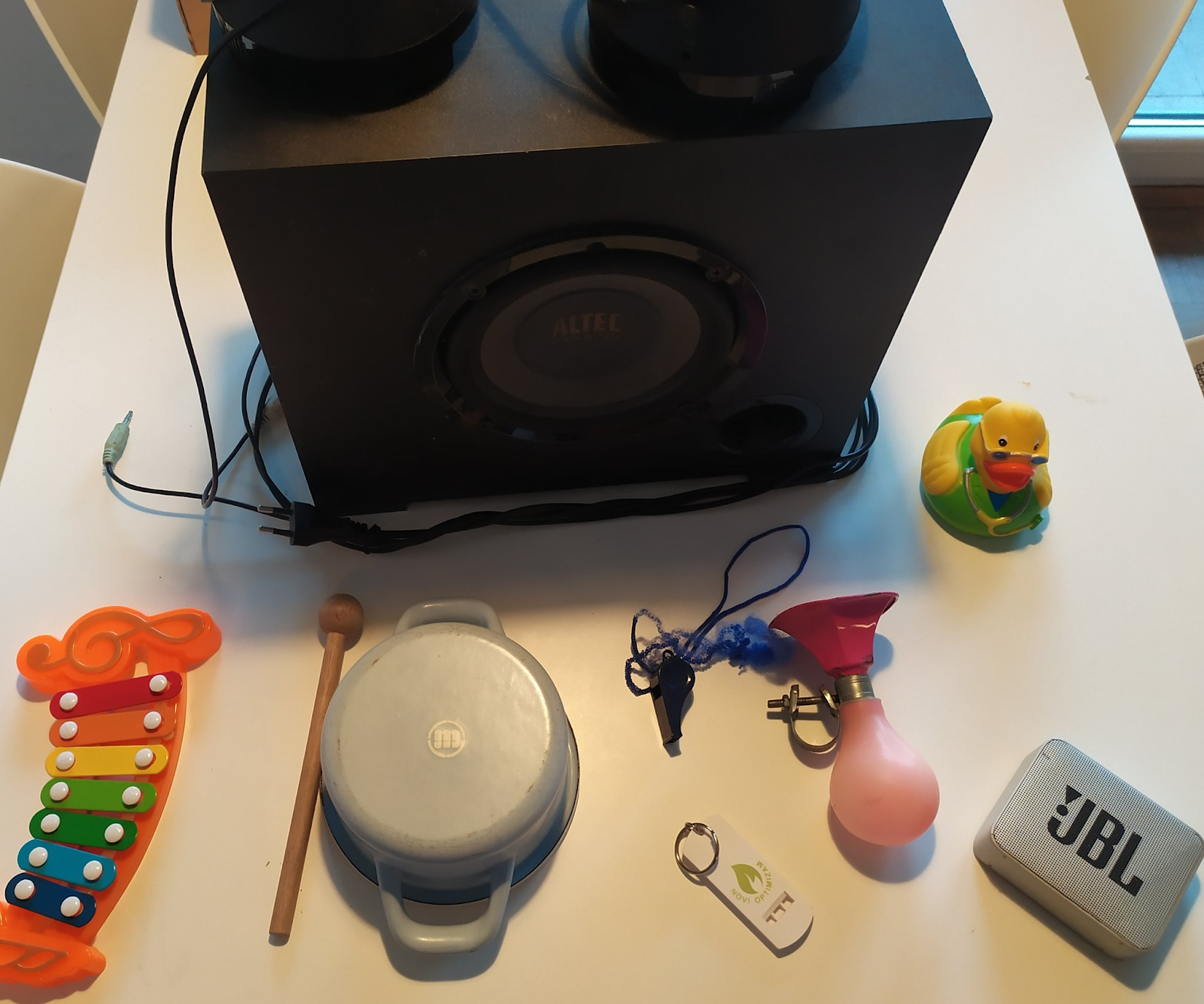SERBIA: How Serbian activists started a nationwide anti-authoritarian protest during COVID-19 lockdown
Article originally published on Waging NonViolence, 7 May 2020 – accessible here
Author: Miloš Budimir
For the past few years around election time in Serbia, people have taken to the streets to protest government corruption, attacks on free press and voter suppression. This Spring, despite a nationwide lock-down to combat the COVID-19 pandemic, activists are finding new ways to protest the country’s increasingly-repressive government.
After a curfew was imposed throughout the country on March 18, people started applauding out their windows every evening for doctors and medical workers. The Ne Davimo Beograd (Don’t Drown Belgrade) movement, or NDB — which I have been involved with for over three years — created a Facebook group called “Applause at 8.” The action involved thousands of people and showed strong public support for essential workers. At the same time, we also organized a few “themed” applauses, such as when we clapped in solidarity with people in the nearby city of Zagreb, which was hit by an earthquake on March 22.
After a month of applauses, on the day elections were supposed to be held, we called citizens to stay at their windows five minutes longer to participate in a distributed protest called “Raise your voice: Noise against dictatorship.” This nightly action encourages people to come to their windows and balconies to make noise against the regime — by banging pots and pans, shouting, playing instruments, blowing whistles or any other way they can. Some activists have also projected images onto buildings in their neighborhoods to amplify the action.

Activists project message in support of balcony protests onto a building in Belgrade. (Instagram/ @NeDavimoBGD)
This nightly noise-making has drawn thousands of people to participate all across the country, flooding the internet with videos and using the hashtag #BukomProtivDiktature. Sometimes there is a specific theme for one of the evening protests highlighted on the Facebook event pages, like support for workers on May 1.
The group, which has more than 20,000 members, provides a platform for people to share ideas and suggestions, as well as videos and support messages. The actions have reached far beyond Serbia’s capital city to smaller towns around the country. Although NDB is based in Belgrade, it belongs to an association called the “Civic Front” with seven other cities that have coordinated actions, like clean air rallies, around the country.
Banging pots and pans is a tactic that has been used in many social movements around the world, beginning with the carcerolazos that emerged in Chile under the brutal regime of Augusto Pinochet. This kind of noise-making was used as a form of protest in Barcelona during the COVID-19 lockdown, when citizens demanded more support from the state and royal family. It was also popular in Serbia in the 1990s under the regime of Slobodan Milošević. During the evening national television news broadcasts, which were notoriously filled with propaganda, people would use kitchen equipment to make noise protesting the regime.

The “Civic Front” is an association of activists across eight cities in Serbia who coordinate protest actions, like this banner drop on a bridge in the town of Kosjeríć.
But now we call on the demonstrators to use anything they can find — drum sticks, loud speakers, even vuvuzela horns — to make a mishmash of sounds together. These protests have drawn participation from a wide range of the population, including one 97-year-old woman who shared a video joining in the noise-making from her window.
Public outrage has grown in recent years to corruption in Serbia’s government, from mass demonstrations four years ago after an illegal waterfront demolition to last year’s #1od5miliona campaign against state repression. Now, citizens fear the government is using the COVID-19 crisis to violate democratic freedoms. With these balcony protests, public outrage is spreading in opposition to President Aleksandar Vucic’s abuses of power, including the arrest of journalists and manipulating elections.
Extending presidential powers during the pandemic
On March 15, President Aleksandar Vucic declared a state of emergency during a live press conference in response to the coronavirus situation. This state of emergency was applied nationwide throughout the Republic of Serbia, despite the fact that — according to the Constitution — a state of emergency must be declared by the National Assembly. This was a warning sign that the president was abusing his power and violating the Constitution — something President Vucic has been accused of doing throughout his political career.
After declaring the state of emergency, the government announced specific measures to counter the disastrous COVID-19 outbreak: schools and universities were closed, companies were urged to let employees work from home and a curfew was imposed between 5 p.m. and 5 a.m. each day. The most extreme measure forbade all citizens over 65 years old from leaving their homes at all. The Serbian health system has been eroded over time by corruption, low investments in healthcare and poor treatment of medical workers. As a result, public officials feared that hospitals would be quickly overwhelmed with patients.

National elections in Serbia were scheduled to take place on April 26 — the date we first called people to protest from their windows and balconies — but they were postponed for the duration of the state of emergency. Now Vucic is advocating to hold elections as early as June, despite the ongoing crisis, after telling people he will give each adult citizen 100 Euros as a financial stimulus during the COVID-19 crisis, an effort aimed to boost his performance in the polls.
Just days before the first COVID-19 cases were reported in Serbia, Vucic’s ruling party was gathering crowds of people and collecting signatures — even though one of the doctors from the COVID-19 response team later said that they had known about the initial cases of the virus at the time. The doctor later changed her story and said she had gotten the dates confused. Serbia’s opposition had already planned to boycott the elections to protest ongoing abuses of power by the ruling party, lack of media freedom and increasing concerns that Vucic’s regime is sliding towards authoritarianism.
The state of emergency announcement was followed by a series of long and dramatic press conferences led by Vucic. NDB gained over 4,000 signatures on a petition calling for medical experts to take the stand with concrete information and instructions, instead of using these press conferences as a platform for the president’s political campaign. His frequent public appearances are inciting panic by telling people that all the graveyards in Belgrade won’t be enough to manage the virus’s death toll. Activists are not calling for people to go to the streets or for protective measures to stop, but they argue that doctors should have the last word in advising the public — not Vucic.
After imposing the state of emergency, Serbia is closer to a one-man dictatorship than ever. One journalist was arrested because she pointed out the poor conditions where one hospital was treating patients. A viral video shows a police officer repeatedly slapping a citizen because he was out during curfew. At the same time, pro-regime hooligans are climbing onto rooftops after curfew during the 8:05 noise protests, carrying lit torches and playing loud slogans against Vucic’s political opponents. Members of the ruling Serbian Progressive Party, Srpska Napredna Stranka or SNS, are also going around Belgrade during curfew, handing out Serbian flags “as a gift from the city manager” — one of the officials involved in the highly unpopular 2016 demolitions in Belgrade’s Savamalawaterfront.
NDB actually marked the fourth anniversary of these illegal demolitions on April 24, an event that changed Serbia. In order to build a luxury waterfront development project, the government hired a group of masked men to conduct illegal demolitions in the middle of the night, during which one witness died under mysterious circumstances. Public outrage exploded, and tens of thousands took to the streets in 2016 demanding accountability of city and government officials. Even today, the case has not been officially solved, and it remains one of the biggest government scandals.
Mobilizing people to take action from home
The noise-making protests have only been one element of how NDB has been organizing demands since the state of emergency began. The movement has also called on city officials to reallocate traffic lanes for bike use during the crisis, since public transportation is not operating and car traffic is reduced. Through a press release, social media statements and a formal letter, we called on the city to change the yellow traffic lanes — which are used for buses and taxis — into bike lanes. Cycling has been an important mode of transportation during the COVID-19 crisis, both for public health and for people who rely on public transportation to buy groceries and supplies.

While so many people are sitting at home and surfing the internet, NDB has used this time as an opportunity to organize people online. NDB launched a participatory internet platform where citizens can chat, share opinions and discuss important topics. It is primarily oriented towards formulating political demands for the city of Belgrade.
Our perception of democracy is that it has to be bottom-up, and that only through the involvement of a great number of citizens can we bring real change in politics. These are the ideas we promoted when we ran in the Belgrade elections in 2018, and although we received over 30,000 votes, we did not win enough to gain seats in the Belgrade Parliament. We will continue to promote these ideals, to learn from our mistakes as a movement, and to improve our efforts. We believe that decision-making has to include us, the citizens, and this is only the first step towards a more participatory society.

